Genetics
-
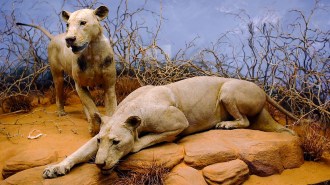 Animals
AnimalsDNA from old hair helps confirm the macabre diet of two 19th century lions
Genetic analysis of cavity crud from two famed man-eating lions suggests the method could re-create diets of predators that lived thousands of years ago.
By Jake Buehler -
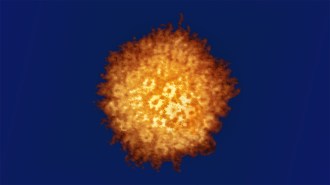 Health & Medicine
Health & MedicineA viral gene drive could offer a new approach to fighting herpes
A new gene drive can copy and paste itself into the genomes of herpes simplex viruses in mice. The end goal is a version that disables the virus in humans.
By Meghan Rosen -
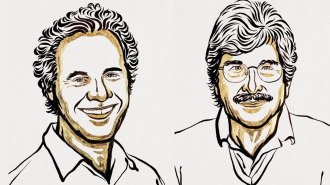 Genetics
GeneticsThe discovery of microRNA wins the 2024 physiology Nobel Prize
Victor Ambros and Gary Ruvkun found a new principle of gene regulation essential for all multicellular organisms.
By Tina Hesman Saey and Sophie Hartley -
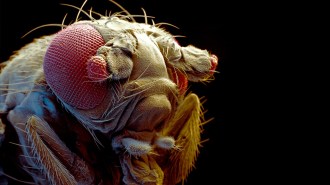 Life
LifeThe fruit fly revolutionized biology. Now it’s boosting science in Africa
African researchers are using Drosophila melanogaster fruit flies to advance studies of genetics, biomedicine, developmental biology, toxicology and more.
-
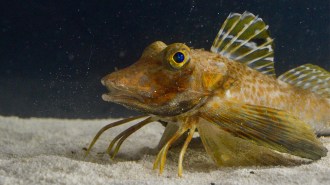 Animals
AnimalsThis fish has legs — and it uses them for more than just walking
Some sea robins have taste buds on their six crablike legs that help the fish ferret out prey buried in sand as they walk.
-
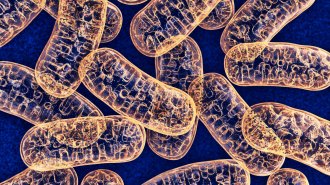 Neuroscience
NeuroscienceMitochondria can sneak DNA into the nuclei of brain cells
An analysis of tissue samples from nearly 1,200 older adults found that the more insertions individuals had, the younger they died.
-
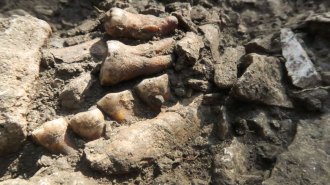 Anthropology
AnthropologyAncient DNA unveils a previously unknown line of Neandertals
DNA from a partial skeleton found in France indicates that European Neandertals consisted of at least two genetically distinct populations.
By Bruce Bower -
 Animals
AnimalsA frog’s story of surviving a fungal pandemic offers hope for other species
Evolving immunity to the Bd fungus and a reintroduction project saved a California frog. The key to rescuing other species might be in the frog’s genes.
-
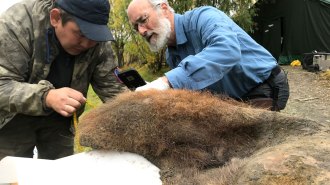 Genetics
GeneticsFreeze-drying turned a woolly mammoth’s DNA into 3-D ‘chromoglass’
A new technique for probing the 3-D structure of ancient DNA may help scientists learn how extinct animals functioned, not just what they looked like.
-
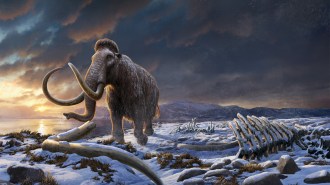 Paleontology
PaleontologyThe last woolly mammoths offer new clues to why the species went extinct
The last population of woolly mammoths did not go extinct 4,000 years ago from inbreeding, a new analysis shows.
By Claire Yuan -
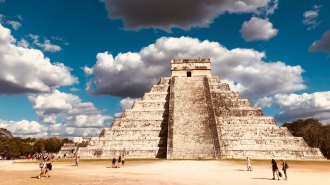 Anthropology
AnthropologyChild sacrifices at famed Maya site were all boys, many closely related
DNA analysis shows victims in one underground chamber at Chichén Itzá included twins, perhaps representing mythological figures.
By Bruce Bower -
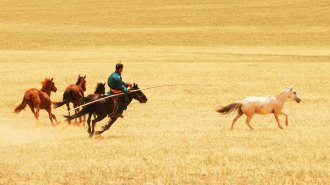 Genetics
GeneticsHorses may have been domesticated twice. Only one attempt stuck
Genetic evidence suggests that the ancestors of domestic horses were bred for mobility about 4,200 years ago.